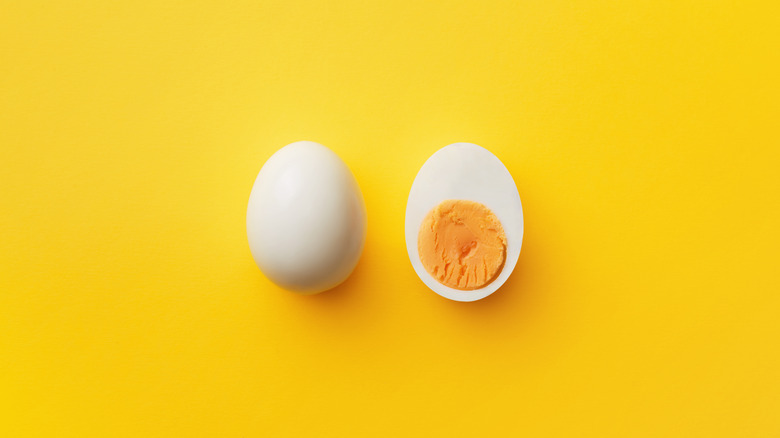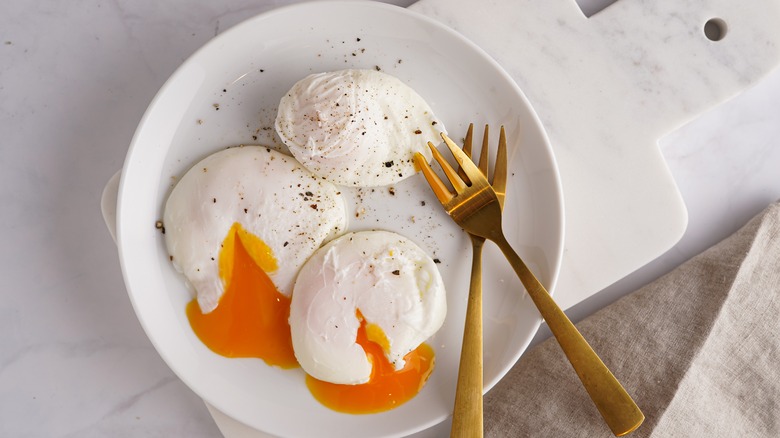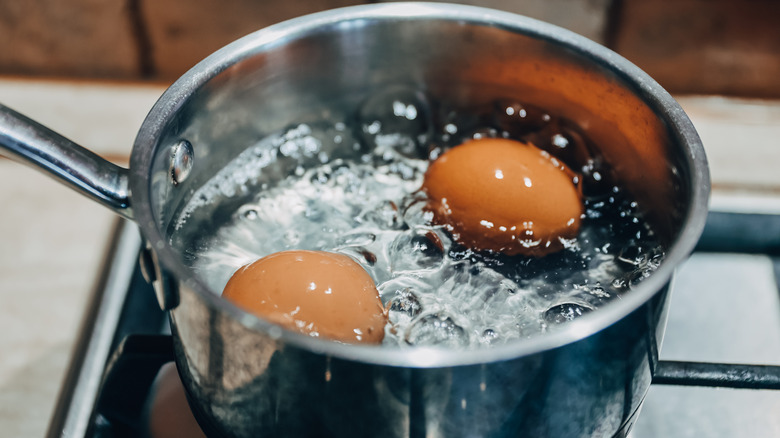Hard-Boiled Eggs Vs. Poached: Is There A Nutritional Difference?
What came first: the chicken or all the different ways to cook eggs? Eggs are perhaps the most common and versatile breakfast foods, with recipes ranging from eggs benedict and frittatas to scotch eggs and breakfast sandwiches.
While their nutritional value is up for debate due to their high levels of dietary cholesterol, per Harvard T. H. Chan School of Public Health, it is also evident that eggs provide an excellent source of protein, vitamins A and B7, and choline — not to mention the fact that they are a financially accessible food source.
According to BBC Good Food, there are also a variety of eggs to consume, most commonly chicken eggs, but more gourmet alternatives may include quail or duck eggs. Contrary to popular belief, the color or size of the egg doesn't have any effect on its nutritional value, but the way you cook them might.
Two egg-cooking methods
There are various methods to cook an egg, some of the most common being frying, scrambling, and of course, poaching and hard-boiling.
What exactly is the difference between poaching and hard-boiling? As opposed to other methods of cooking eggs, both poaching and hard-boiling require water. According to The Daily Meal, hard-boiled eggs are cooked with the shells still covering the exterior and dropped into boiling water. The interior of the eggs will have different textures depending on the length of time you leave them boiling.
Poached eggs differ slightly in that they are cracked into boiling water without their shells. They are cooked for significantly less time, two to three minutes, and require the water to be simmering rather than boiling. The yolks are typically meant to be runnier than those of hard-boiled eggs, depending on the recipe you are using.
So, does the difference in these two cooking techniques lead to a significant difference in nutritional value?
Poached eggs allow for more nutrients
Cooking an egg is necessary before eating it, as this process kills any lingering bacteria and makes it safer to consume. However, according to Healthline, cooking can also inadvertently decrease the antioxidant levels present in the egg by as much as 18%. Fortunately, shorter cooking times have proven to conserve more antioxidant levels, meaning that poached eggs are the way to go if you want a more wholly nutritious experience.
However, if you are still craving a hard-boiled egg, you may want to consider soft boiling or lowering the cooking time to preserve some of those nutrients. Keep in mind that the yolk will be runnier than usual. A simple recipe you might consider using poached eggs in is the classic eggs benedict, in which a poached egg sits atop a slice of ham and a crispy English muffin, topped with a creamy hollandaise sauce (via Tastes Better from Scratch).


